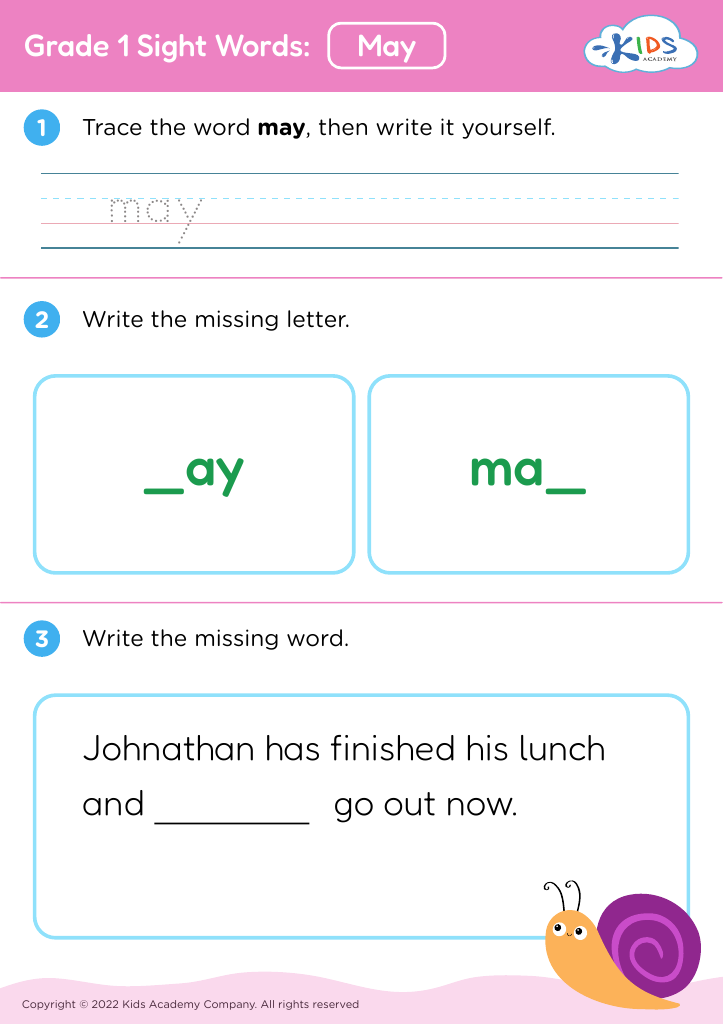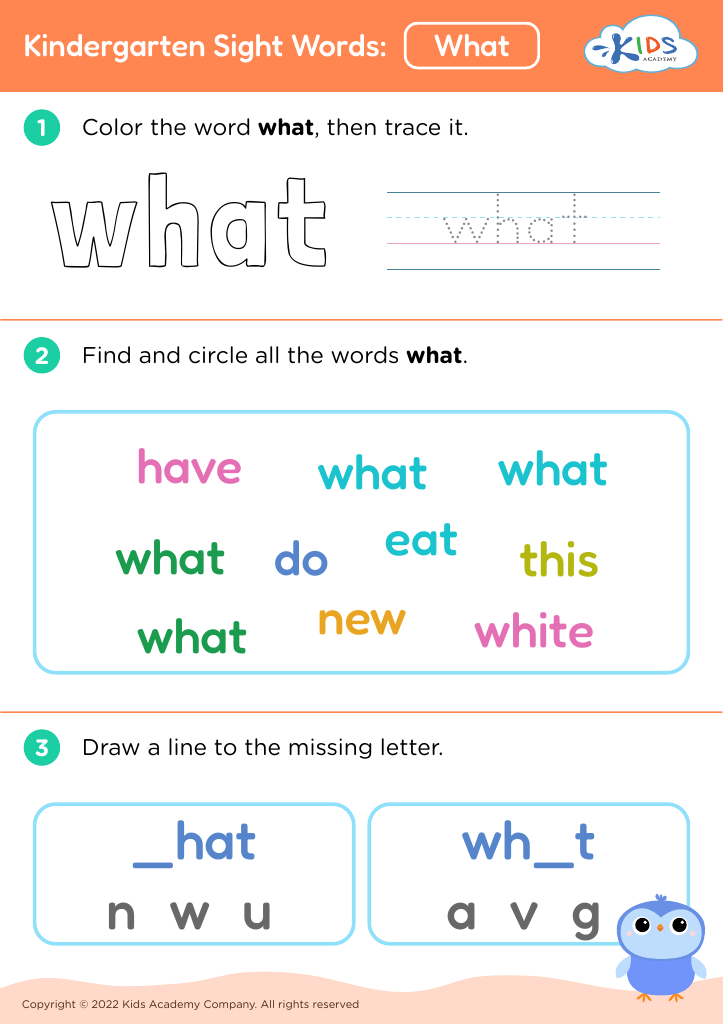Recognizing numbers Building Vocabulary Worksheets for Ages 5-6
3 filtered results
-
From - To
Introduce young learners to the exciting world of numbers with our Recognizing Numbers Building Vocabulary Worksheets for Ages 5-6. Designed to blend numeracy skills with language development, these engaging worksheets make learning fun and effective. Each activity advances your child’s ability to identify, count, and write numbers while increasing their vocabulary. Perfect for early graders, these printables foster confidence and a love for learning. Boost your child’s foundational skills in reading and mathematics through hands-on practice and creative exercises. Nurture their academic growth and pave the way for future success with our expertly crafted materials.
Recognizing numbers and building vocabulary are foundational skills for young children, particularly those aged 5-6. These skills are critical because they serve as the building blocks for future academic success and overall cognitive development. For one, number recognition lays the groundwork for essential mathematical understanding. At this developmental stage, children begin to understand concepts such as counting, addition, and subtraction. Being able to recognize and understand numbers enables children to solve simple math problems, which boosts their confidence and sets a positive attitude toward learning.
On the other hand, a robust vocabulary is crucial for language development and communication skills. At ages 5-6, children are rapidly expanding their ability to express thoughts and understand others. A strong vocabulary aids in reading comprehension, an essential skill for all learning areas. This age is often when children begin to transition from 'learning to read' to 'reading to learn;' thus, a well-developed vocabulary fosters better understanding and engagement with texts. Furthermore, early vocabulary and numeracy skills are closely linked to academic achievement later in life.
Therefore, parents and teachers should prioritize these skills to support holistic early development. Engaging children in activities that build these skills will not only enhance their immediate learning capabilities but will also establish a solid foundation for lifelong education.




















